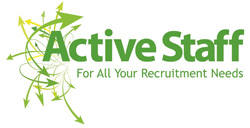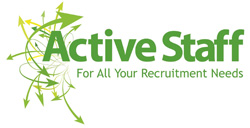5 Ways Businesses Can Ease The Minimum Wage Increase – April 2023
Active Staff Ltd, an independent employment agency has been supplying permanent and temporary workers for almost 25 years. We are proud to offer solutions to flexible labour, being able to position ourselves as a level of support and expertise.
I’m keen to assist business owners and managers to start thinking about the minimum wage increase which comes into effect on 1st April 2023. Workers over 23 will see an increase from £9.50 to £10.42 per hour.
Having seen the minimum wage implemented and in place now for the past few years, we are starting to get used to this on an annual basis, but it still doesn’t make it easier on our costs. In the main, the lower skilled workers are those who benefit the most, therefore costing companies using temporary workers the most. Temps are very useful for flexible labour so we are working with our clients to assist where we can. Ideas such as temporary to permanent agreements upfront and more awareness around KPI’s to increase productivity. We have been able to offer payment terms and set fees to ease the ever-rising costs.
Bryan Sanderson, Low Pay Commission Chair, said:
The minimum wage increase in April 2023, which was announced last year will support the wages and living standards of low-paid workers at a time when many are feeling increased pressure from the ever-increasing costs of living. They are recommended against a backdrop of a tight labour market where unemployment is at record lows and vacancies remain high as businesses compete to recruit and retain staff.
- The rates announced include the largest increase to the NLW since its introduction in 2016 and will provide a much-needed pay increase to millions of low-paid workers across the UK, all of whom will be feeling the effects of a sharply rising cost of living. For a full-time worker, the increase equates to £150 more per month.
- The tightness of the labour market and historically high vacancy rates give us confidence that the economy will be able to absorb these increases.
- Businesses also have to navigate these economically uncertain times and by ensuring we remain on the path to achieve our 2024 target; employers will have greater certainty over the forward path.
- These recommendations have the full support of the business, trade union and academic representatives who make up the Commission.
Alongside the NLW, the Commission recommended significant increases in the National Minimum Wage (NMW) rates for younger workers. The 21–22-Year-Old Rate will increase to £10.18 per hour, narrowing the gap with the NLW and leaving this age group on course to receive the full NLW by 2024. NMW rates for 18-20 and 16-17 year olds and apprentices will increase in line with the NLW increase of 9.7% in recognition of the tight labour market and strong demand for labour in youth-friendly sectors.
Lisa is advising on how businesses can plan for this, to ease the additional cost, over the next 8 weeks?
- Review current workforce and ensure you have the right people doing the right role, being paid at the right salary – Streamline and carry out a bench marking exercise.
- Review all others costs outside of the labour cost – can you be more cost effective to put those savings into driving your business forward via your team.
- Increase BD activity to drive sales to increase profit, easing this additional cost.
- Revisit lapsed customers – reconnect and review.
- Remind customers of all you offer to place yourself as a one stop shop, making the customer journey easier and time saving.
People are our business.
#support#jobsecurity#costoflivingcrisis#clients#candidates#sharingideas#NLW

